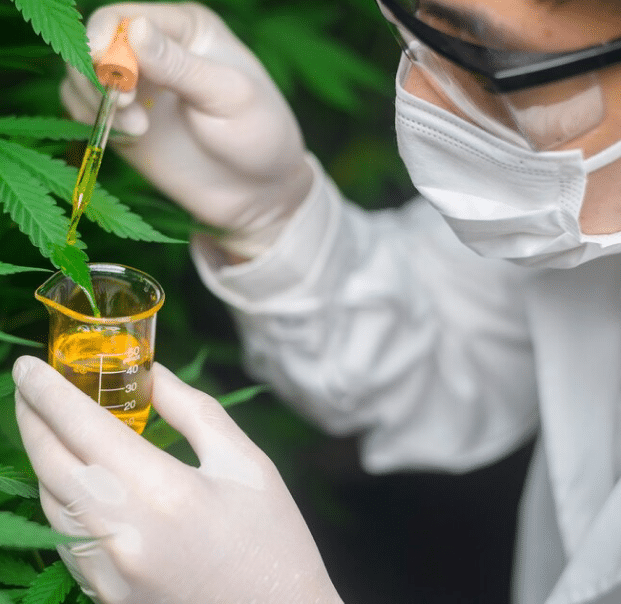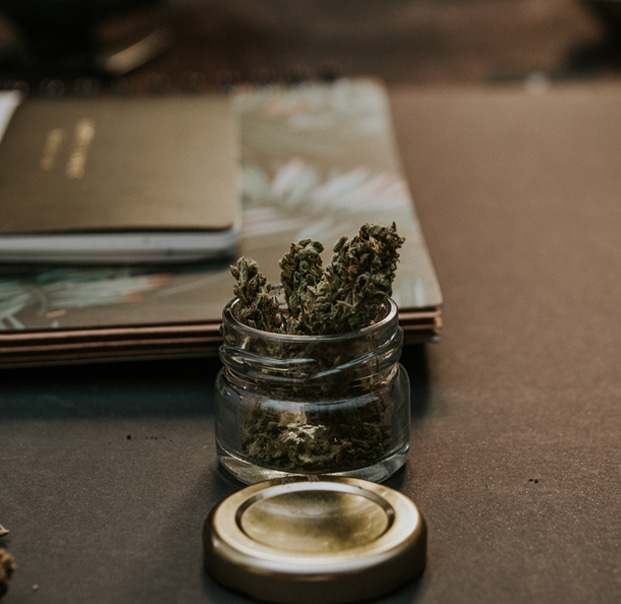Background
However, the real challenge begins with obtaining a cannabis license in Delaware. If you wish to tap into the state’s rapidly growing cannabis market, it’s crucial to understand the intricacies of the process.
This article breaks down the steps to help you understand the requirements and procedures necessary to acquire a Delaware cannabis license. Let’s begin!
Types of Cannabis Licenses in Delaware
Cultivation Licenses
Permits for growing cannabis, with various tiers based on facility size and growing conditions.
Manufacturing Licenses
Allows for processing cannabis into various products, including extracts and edibles.
Retail Licenses
Enables the operation of dispensaries and delivery services for medical and/or recreational use.
Distribution Licenses
Required for transporting cannabis products between licensed facilities.
Cultivation Licenses
Set to issue up to 60 licenses. Application process includes facility review and local zoning compliance.
Back to the TopManufacturing Licenses
Up to 30 processor licenses available. Includes safety, facility, and inventory control compliance.
Back to the TopRetail Licenses
30 dispensary licenses planned. Application lottery with equity priorities.
Back to the TopDistribution Licenses
Transport allowed under certain licenses. No separate distribution license listed.
Back to the TopHow to Obtain a Cannabis License in Delaware?
Research and Prepare
Securing cannabis business licenses is the first step to entering the booming cannabis industry in the State. Entrepreneurs should conduct thorough market research to identify opportunities and challenges in the Delaware cannabis market. Here are some key factors to keep in mind during the research phase:
Eligibility Criteria
To qualify for a cannabis business license in Delaware, applicants must be at least 21 years of age and provide a state’s residency proof. Plus, different zoning regulations may apply in areas you want to operate.
Ensure compliance with these regulations before moving ahead with the application.
It’s best to thoroughly read through the eligibility criteria set by DHSS to avoid any inconveniences or legal issues down the line.
Note: The eligibility requirements vary for both social equity and micro business license applicants.
Background Checks
Additional requirements, such as background checks or security plans, may need to be submitted alongside your application. These requirements also depend on the specific type of license you opt for. Background checks may also encompass criminal history records and other financial investigations.
Application Timeline
Next, allocate sufficient time to familiarize yourself with the application timeline specific to Delaware and arrange your preparations accordingly. The best way to do so is to keep track of any important dates, deadlines, or notifications provided by the regulatory authorities.
Associated Fees
Understanding the license fees associated with operating a cannabis business is vital for budget planning. The license fee varies depending on the type of license, while the application fee remains the same for all types and categories.
Here’s the fee summary:
- $5,000 non-refundable application fee ($1,000 for social equity and $3,000 for microbusiness)
- Retail License Fee – $10,000 biennially
- Testing License Fee – $10,000 biennially
- Cultivation License Fee – $2,500 – $10,000 biennially (based on plant grow canopy area)
- Product Manufacturing License Fee – $10,000 biennially
Note: Review the fee structure outlined by the authorities beforehand to avoid running into issues later in the process.
Develop a Solid Business Plan
Once you have a clear understanding of the requirements for your cannabis business, the next step is to develop a thorough and comprehensive business plan.
A solid business plan should include the following:
- A thorough outline of your business
- Organizational Structure
- Target Audience
- Sales and Marketing Strategy
- Security Measures
- Financial Projections
- Competitor Analysis
- Compliance Strategies
Pro Tip: You can avoid any potential loopholes in your business plan by curating a bulletproof risk management plan supported by adequate insurance coverage.
Assemble the Necessary Documentation
After developing a rigid business plan, you need to gather the necessary documents required to obtain your license. This can be a time-consuming process, and the documentation requirements may differ depending on the type of license you’re seeking.
Here’s a checklist of the general documents you will need for the Delaware Cannabis License Application:
- Proof of Identification (e.g., driver’s license, passport)
- A business license from the Delaware Division of Revenue
- Certificate of Occupancy compliant with the local zoning regulations
- Tax Documents
- Security plan and documentation pertaining to physical security measures
- Seller’s Permit from Delaware Department of Finance
- Local permit from the respective county or city authorities
- Financial Statements
- Business Plan
- Systemized Security Plans and overlays
For better insights about the required documents, check out state-by-state application requirements.
Submitting the Application
Once you have gathered the necessary documents, you can head on to submit your license application.
The Delaware Marijuana Control Act became law in April 2023. Hence, the state is expected to begin accepting license applications from May 2024 onwards.
Also, the issuance of cultivation licenses is anticipated to begin in June 2024, product manufacturing licenses in July 2024, and retail and testing licenses later in October 2024.
Moreover, the state will issue licenses on a merit-based scoring system. Your application will be carefully evaluated against other candidates, and the highest-scoring applications will be granted the cannabis license.
Hence, successful completion and submission of the cannabis license application in Delaware will require close attention to detail and strict compliance with the specified deadlines. This implies that you must ensure utmost perfection before ultimately submitting your application.
Here’s a quick guide to help you through the reviewing process:
- Check to see if all the documents are up-to-date
- Double-check all the sections and entries
- Highlight your skills relevant to the cannabis industry
- Make sure your business plan encompasses all the necessary details
- Outline your strategies for positively impacting the local community
- Review your application for any errors, and proofread it thoroughly.
- Submit the application before the deadline
Note: All licenses are expected to last for about 2 years.
Payment and Fees
Note: Fee structures are subject to change. Consult the official Delaware cannabis regulatory website for current fee schedules.
Application Fees
The application fee covers the initial costs associated with processing and reviewing cannabis business license submissions in Delaware. These fees vary depending on the type of license and the size of the proposed operation. It’s essential to ensure all application materials are complete and accurate to avoid delays or additional costs.
License Fees
License fees are required to maintain compliance and secure operating privileges for cannabis businesses in Delaware. These fees are determined based on the license type, such as retail, cultivation, or distribution, and are typically due annually. Staying current with license payments is crucial to avoid penalties or disruptions in business operations.
Application Review and Compliance Inspection
Securing a cannabis license in Delaware requires fulfilling all the requirements and regulations established by the Delaware Division of Public Health. These requirements include getting zonal approval for your cannabis venture, meeting security and employee training criteria, and abiding by the record-keeping regulations.
Compliance with the requirements of the state’s medical marijuana program is essential for obtaining a business license.
It is equally essential to adhere to Delaware’s standards for the packaging and labeling of cannabis products. Applicants must also ensure that areas such as security, inventory management, and sanitation comply with state laws and other safety standards.
After submitting the application, the Office of Medical Marijuana will closely examine your details and conduct a comprehensive evaluation of your submitted application. This may include an on-site inspection of your desired business location.
Receiving the Final Application
Upon receiving the application, the OMM (Office of Medical Marijuana) will decide whether to proceed with your license application. If approved, you will receive a provisional license subject to a final inspection before obtaining the final license.
The entire process may take a few months to complete. Once your license is ready, you must pay the annual fee to operate your Delaware cannabis business with a final license!
Note: The OMM reserves the right to request further information or documentation during the review process.
Delaware Cannabis Business Licensing: May 2, 2024 Update
Delaware is launching its adult-use cannabis industry, and this webpage provides a comprehensive overview of the licensing process for prospective business owners.
License Types and Availability
Delaware offers a variety of licenses catering to different business models. Here’s a breakdown of the options:
- Cultivation:
- Micro-Cultivation (indoors only, under 2,500 sq ft): $3,000 fee (20 licenses available for microbusinesses, 10 for social equity applicants)
- Open Cultivation (2,500-12,500 sq ft): $5,000-$10,000 fee (depending on size) (20 licenses available for open applicants, 10 for social equity)
- Manufacturing: $5,000 fee (10 licenses each for open, social equity, and microbusiness applicants)
- Retail: $5,000 fee (15 licenses each for open and social equity applicants)
There will be a total of 120 licenses available in 2024. All licenses will be awarded through a random lottery system. Social equity applicants, those who have been disproportionately impacted by past cannabis laws, have a designated number of licenses reserved for them in each category.
Local Control, Buffer Zones, and Real Estate
- Municipalities have the authority to prohibit cannabis businesses within their jurisdiction.
- The state enforces a 1200-foot buffer zone between cannabis retail locations in incorporated towns and cities. In unincorporated areas, the buffer zone is one mile. Some exceptions apply.
- The state can reject applications for locations deemed too close to sensitive areas like schools, parks, and daycares, but there are no set distance requirements.
Real estate requirements differ based on the applicant type:
- Microbusiness and social equity licensees have 180 days to secure a compliant property after receiving a license.
- Non-social equity applicants need to demonstrate they have secured a property at the time of application.
Current Market Status and Social Equity
As of February 2024, Delaware has 12 operational dispensaries, serving roughly one dispensary per 83,300 residents. If all dispensary licenses are issued and opened in 2024, that number will decrease to one dispensary per 23,809 residents.
The state has established a social equity program to ensure minorities and those impacted by past cannabis laws have a fair shot at entering the industry. To qualify for a social equity license, an applicant must meet one of the following criteria:
- Be a Delaware resident for at least five years and reside in a disproportionately impacted area for the same duration.
- Be a Delaware resident for at least five years with at least one individual holding at least 51% ownership who has a past cannabis conviction (excluding specific offenses) or is related to someone with such a conviction.
Social Equity and Microbusiness Ownership Restrictions
- At least 51% of the business ownership must be held by a social equity person for the first three years of operation. After that period, ownership can transfer to non-social equity individuals.
- During the first three years, ownership transfers can only occur between verified social equity persons.
Microbusiness applicants also have specific ownership limitations:
- At least 51% ownership by individuals who have been Delaware residents for at least five years.
- No more than 10 employees.
- Cultivation facility with a maximum grow canopy area of 2,500 square feet.
- Possession of no more than 1,000 marijuana plants per month.
Financial and Ownership Restrictions
There are additional regulations regarding ownership changes and financial interests applicable to all license types.
- Social equity and microbusiness licenses cannot be transferred to individuals who wouldn’t qualify for the license initially.
- Open licenses can be transferred with approval from the Commissioner.
- Any ownership change requires filing an application with the Commissioner along with financial statements and other relevant documents.
- Acquiring a financial interest in a licensed business requires notifying the Commissioner and providing requested information.
- Ownership or financial interest changes exceeding 10% may incur a fee.
Risk and Compliance Factors From AlphaRoot
The cannabis industry, while burgeoning with opportunities, is not without its complexities and inherent risks. Understanding and mitigating these risks is crucial for long-term success. AlphaRoot, a prominent insurance and risk management firm specializing conduct business in the cannabis sector, sheds light on the key risk and compliance factors
1. Regulatory and Legal Risks
Labyrinthine Regulations The cannabis industry is highly regulated, and compliance with state and local laws is paramount for cannabis establishments. Navigating the intricate web of regulations, which can vary significantly from one jurisdiction to another, poses a substantial challenge for cannabis establishments. Failure to comply can result in fines, license revocation, or legal consequences.
Federal Ambiguity Cannabis remains illegal at the federal level in the United States, despite state-level legalization of recreational marijuana. This dichotomy creates uncertainties and exposes businesses that sell recreational marijuana here to potential federal enforcement actions.
2. Financial Risks
Cash-Intensive Operations Due to federal banking restrictions, many cannabis businesses operate primarily in cash. This not only presents security risks but also complicates financial management and taxation.
Taxation Challenges Cannabis businesses face unique tax challenges, including limitations on deductions and potential audits. Understanding and complying with tax regulations is essential to avoid financial penalties.
3. Security Risks
Theft and Robbery Cannabis businesses are susceptible to theft and robbery due to the high value of their products. Implementing robust security measures at a marijuana cultivation facility, including surveillance systems and secure storage, is vital to mitigate these risks.
Cybersecurity As with any industry, cannabis businesses are vulnerable to cyberattacks. Protecting sensitive customer data and business information is critical.
4. Product Liability and Quality Control
Product Liability Claims Ensuring the safety and quality of cannabis products is crucial to prevent product liability claims. Contaminated or mislabeled products can lead to legal and financial repercussions.
Testing and Quality Assurance Collaborating with reputable independent testing laboratory and facilities, as required by regulations, is essential to verify the safety and potency of cannabis products. Consistent quality control is essential to maintain consumer trust.
5. Market Competition and Volatility
Saturated Markets in regions with a high concentration of cannabis businesses, competition can be fierce. Navigating market saturation requires effective differentiation and marketing strategies.
Price Volatility The price of cannabis products can fluctuate significantly, impacting profitability. Businesses must adapt to market dynamics and price changes.
6. Environmental and Sustainability Concerns
Resource Intensity Cannabis cultivation and processing can be resource-intensive, including water and energy consumption. Businesses need to address sustainability concerns and adhere to environmental regulations.
Waste Management Proper waste disposal and recycling practices are essential to minimize environmental impact and meet regulatory requirements.
7. Talent and Workforce Challenges
Talent Shortages the cannabis industry often faces challenges in recruiting and retaining qualified personnel due to its specialized nature. Employee turnover can disrupt operations.
Training and Compliance Businesses must invest to ensure employees are well-informed about compliance and safety protocols.
About the Author

AlphaRoot Team
The AlphaRoot marketing team are seasoned experts with deep knowledge of the cannabis industry. Our informative articles help cannabis businesses thrive in a competitive landscape. From compliance to insurance tips, we’re dedicated to providing advice tailored to your needs.





